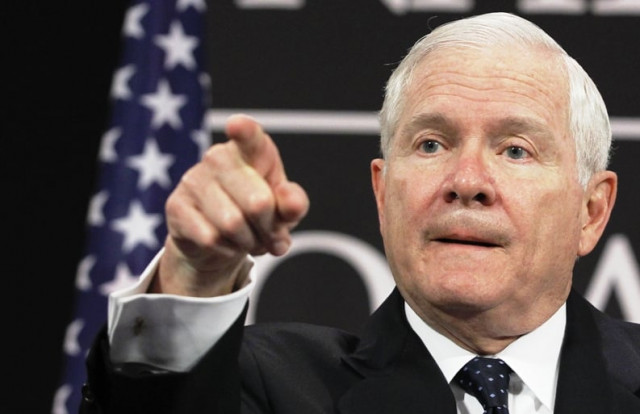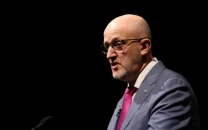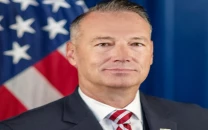No hasty US troop cut in Afghanistan: Gates
Gates said a "rush to the exits" would jeopardise military progress in Afghanistan.

Gates, speaking ahead of the start of President Barack Obama's planned troop cuts in Afghanistan next month, said a "rush to the exits" would jeopardise military progress in Afghanistan.
"We are making substantial military progress on the ground and these gains could be threatened if we do not proceed with the transition to Afghan security lead in a deliberate, organised, and coordinated manner," he told a news conference after a meeting of Nato defence ministers in Brussels.
"Even as the United States begins to draw down next month, I assured my fellow ministers that there will be no rush to the exits on our part, and we expect the same from our allies."
Nato Secretary General Anders Fogh Rasmussen told a news briefing the Nato ministers all pledged no such rush to leave at the Brussels meeting and that he was confident Washington would base its plans on security conditions in the country.
Obama is expected to announce he will bring a sizable number of the 100,000 US troops in Afghanistan home starting in July and US lawmakers have been piling pressure on him to accelerate the end to a long, costly war.
Washington's Nato allies are also keen to get their troops home, but some expressed concern in Brussels about the impact on the 10 year old Afghan mission of too deep a cut in US troop numbers.
"Last year the American government sent 30,000 additional troops they have announced they will withdraw some of them this summer," German Defence Minister Thomas De Maiziere said.
Allies concerned
"We fully understand this, but we are a bit concerned that if it were too many, the strategy might not be implemented as originally agreed. We are counting on a measured pace of the American president," he told reporters.
British Defence Secretary Liam Fox, whose country has 9,500 troops in the nearly 50-state International Security Assistance Force in Afghanistan, said cuts should be conducted carefully.
"What is important is that we maintain our combat strength to make sure we are not giving any space to the insurgency to wreck all the work we have done," he told reporters.
Rasmussen said he was confident the alliance could stick to its timetable for handing over security to Afghan forces by the end of 2014.
He stressed that the process of this transition, which is aimed at allowing a gradual reduction in foreign troop levels, was "based on conditions, not calendars".
De Maiziere said Germany would stick to its plans to start withdrawing its 4,900 troops at the end of this year or early next year, depending on conditions.
Fox said the aim was for British troops to end their combat role by the end of 2014 with a gradual withdrawal leading up to that date, again, depending on conditions.
Spanish Defence Minister Carme Chacon said Spain's 1,500 troops would stick to a timetable for handing over to Afghan forces in Herat province this year and in Bamiyan next year.
After the raid that killed Osama bin Laden in Pakistan on May 2, US Congressional opposition has quickly grown to a war that now costs over $110 billion a year and has yet to yield decisive results on the battlefield or in marathon aid efforts.



















COMMENTS
Comments are moderated and generally will be posted if they are on-topic and not abusive.
For more information, please see our Comments FAQ